People are just beginning to understand the entertainment and education possibilities of VR. The conventional games industry has had over 40 years to consolidate, but there's still a huge scope for indies and entrepreneurs to have an impact on the emerging VR, AR and MR scene.
One such company is Curiscope, a small firm in Brighton which released Great White Sharks – with over 18m views, it's one of the most popular VR experiences created to date.
Based in Brighton just up the road from the annual Develop conference which takes place there every July, their co-founder and creative director Ben Kidd took the opportunity to appear and share his insight. We grabbed Kidd for a chat immediately after his talk, Emergence in VR – Empowering Players to Be Rather Than Do!
Can you give us a little bit of background about yourself and your company Curiscope - where you came from and what you’re up to?
Ben Kidd: Curiscope is a company borne out of frustration. We feel there’s a wasted opportunity in all forms of content really. When you look at TV shows, computer games – we think there’s a missed opportunity. There’s always a really interesting point to be made about something in there, and it’s often being left behind.
So one really good example of that would be that Angry Birds misses the opportunity to talk about trigonometry. And actually, it makes trigonometry really fun. That’s just an example. There’s no harm in it, but we see an opportunity there.
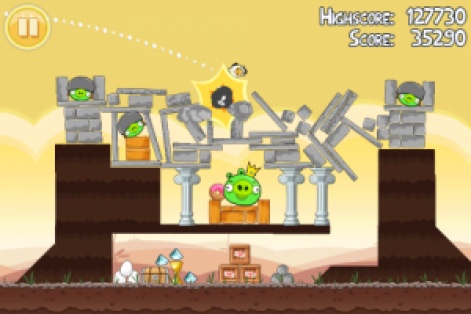
Couple that with Virtual and Augment Reality (and all of the other permutations of that – take a letter of the alphabet and put it before the letter ‘R’!) All of those, and you multiply the opportunity again, because of the engagement you get from other people. People want to use new technology.
Take our example of an Augmented Reality T-shirt; it allows anyone and everyone to have an Augmented and Virtual Reality experience – and very easily, very accessibly. So there’s an engagement. You walk away with something extra from the experience; you’ve learned something. Even if you don’t know what you’ve learned, it’ll feel like it was a rewarding, nutritious experience! So that’s at the core of what we’re doing.
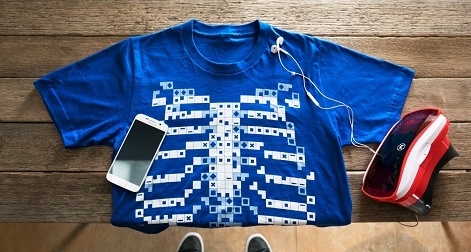
How long have you been working on it and what state are your projects at?
In January 2016 we released a 360-degree video featuring great white sharks, which went super-viral on YouTube. We were really riding 360-degree video at that moment. And from that, we used that momentum to do a successful Kickstarter for this T-shirt, which is now out there as a product. That’s going on Amazon within the next few months. So we’re producing marketing materials and packaging, and going through all the phases that you have to go through to produce a physical product.
You can take a look right now. It’s the price of a regular T-shirt. You download our free app - and then when you point our app at the shirt…
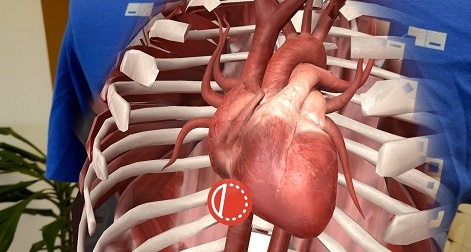
We take things that grab people’s attention and generate a highly entertaining experience, but you end up going away with a sense of impact on your environment.
I can actually see inside you!
Yeah! So this is a really good example of our digestive system through Augmented Reality, and you produce an educational experience. Now you can go further and go right inside me. And this is a glove character that we have, he’s our tour guide through my intestine. So what starts off as a gimmicky T-shirt actually has got, in this case, about 15 minutes of solid education content. We’ve seen this going to schools. We’ve seen mums and dads playing with kids. Kids like it. It’s for all ages.
It’s really good example of what we do. We take things that grab people’s attention, like games for example, and we generate a highly entertaining experience, like a full VR title, but actually what you end up going away with is a better sense of impact on your environment.
Great white sharks is there already. The thing that grabs your attention – I mean, our great white shark film went super-viral, and you can’t deny people’s natural fears of monsters. And we leverage it. Now, where Jaws leveraged that to create cinema tickets and sales through fear, we’re using that same human reaction to a monster to leverage a message about plastic.
Now, this isn’t going to be a game where you go, ‘It’s a cool game, but it’s a shame that it was all about plastic.’ It’s very, very subtle, and it’s actually something that I think only critics would pick up on; but the average player would just be playing. But the next time they walk into a shop, they’d think about: ‘Why is that in that much packaging?’ That’s our goal.
And then we’ve got one other mobile VR product that is coming out, along these lines. It definitely doesn’t involve a T-shirt; we’re not a T-shirt AR company! This was just a way of us getting a huge amount of attention very quickly, because ultimately, what we’re trying to do is produce a large body of content in the long run. Ultimately we see ourselves as being an app on a holodeck.
Our main measure of success is our positive social impact, and we believe the only way to have a positive social impact is to make lots of money and do good things with that money.
Giving the app away for free, how do you make money? What’s your company’s model? You’re pursuing worthy ends, but you’re also a business...
We are. We have to be. Our main measure of success is our positive social impact, and we believe the only way these days, in our economy, in our capitalist society, to have a positive social impact is to make lots of money and do good things with that money. So that’s essentially how we’re set up.
Money is part of how we have a big impact and therefore the more viable we are in business, the more impact we can have. I would imagine Tesla is fairly similar. Musk has already got all the money in the world [laughs]. So what he’s after is an impact. He wants to make a dent. And that’s how we feel.
So how have we done it? Stepping stones. So, we start off with something valuable, like hits. Hits make money. We could just about cover a salary – one of our salaries – with our advertising revenue from our great white shark film. So that’s a really small, interesting insight into how we’re hacking our way through this.
But really, the valuable thing for us was momentum and attracting attention from investors – because we knew we would need investment. So everything we’ve been doing - including the Kickstarter - was a stepping stone. We have to prove ourselves. This is not an illusion or a trick. If you can’t do a Kickstarter, you shouldn’t even be talking business. Right? You just need to go out and prove yourself in the market.
So we did that and we have raised money, which allows us to be non-client-based. We don’t have to provide any services to anyone. It allows us to focus on our core products. And the way we operate is that whatever is the viable market mechanism at the time – for example, a Steam VR release – we’ll do that really, really well. If other VR titles can release on Steam and make money, then so will we. Come hell or high water, we’ll make it happen. We come from backgrounds of advertising and marketing, and we know that’s at the core of how you sell anything.
So we’ve got that on our side. Plus, we’re producing high-quality, very entertaining products. As soon as we scratch the surface of people’s attention… we know it’s hot. We’ve designed it to be hot.
The T-shirt, for example, makes money. It’s a T-shirt. There's a free app – but when was the last time you could sell an app for £30 minus the cost of a T-shirt? So that’s where the physical product actually allows us to leverage it. If we made it work with any T-shirt, then we’d need to start charging for the app. People probably wouldn’t pay (well, you can actually buy our app outside of the T-shirt. It was one of the requirements of Apple, funnily enough.) The point is, you can see how there’s an app that’s probably worth £2 to £4. The T-shirt is worth a lot more. So we knew physical products opened a higher margin to us.
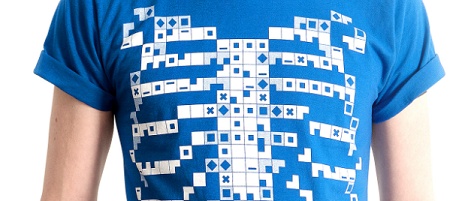
We make money by making good business decisions to produce more stepping stones, more opportunities for us. We have taken investments, but we are also aiming to be profit-making. We’re not promising a pot of gold at the end of the rainbow, but we're making ourselves profitable as soon as we can. It makes you more valuable.
We’re very aware of what’s heading to the mass market and we climb it like a ladder. But we're not going up the ladder; it’s the ladder that’s moving, and we’re staying in that one place.
You said you saw yourself as being an app on the holodeck. That's ambitious. But there's also some concern that VR might take some time to reach mass market. It’s still an expensive way to experience games. What do you think the direction is for VR and AR?
Mobile first, 100%. We’ve got a bit of a strategy that tracks the way things travel from conception in a lab. From a VR device that only exists behind closed doors to the fact that now Apple has a phone that runs AR. If you’ve got enough money, you can have AR – proper AR – on a device yesterday. Which is very exciting.
And this is a pattern which is continually happening. It happens in the automotive industry. Formula One cars get carbon fibre brakes. Now, BMWs on the streets have carbon fibre brakes. Technologies do make their way down the chain.
It’s the same that’s happening for us. So what we do is, we straddle that movement and make sure that we’re aware of what’s coming. We’re very aware of what’s heading to the mass market and we climb it like a ladder. But we're not going up the ladder; it’s the ladder that’s moving, and we’re staying in that one place, and giving people at the bottom end something really special but accessible, and giving some people at the top end something that’s really special and high quality.
So that’s why we’ve got room-scale experiences and mobile experiences. And we see it going in that direction. So we don’t really have to change our strategy. We just have to be watching the horizon and at what’s coming, and preparing for it, and watching the market and seeing how it’s reacting to it. And providing we make money from those products as we go, we’ve got all the time in the world.
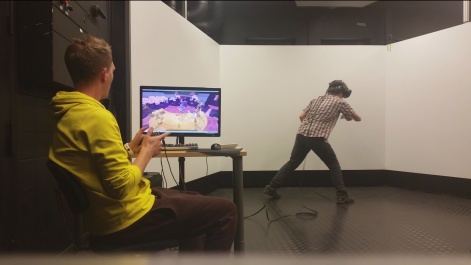
VR is much less about guns, which is fantastic. There's something games can learn from what’s going on in VR at the moment...
You said games is a place and opportunity to grab people’s attention. That’s not necessarily your background, but what's your experience here and what lessons are you taking from the games industry?
My experience of games is primarily first-person experiences. I’ll always gravitate to them. I’ll always pick up a first-person. I’m one of those people that played Half-Life and their life changed. I always felt like that was because I was being someone. I was role-playing Gordon Freeman. And of course, naturally, VR comes along, and it’s a no-brainer – of course, I’m going here!
But first-person games were always, more often than not, shooters. But look at how many shooters you’ve got in VR, it’s no way near! It’s so much less about guns, which is fantastic and, I think, really, really exciting. In fact there's something games can probably learn from what’s going on in VR at the moment...
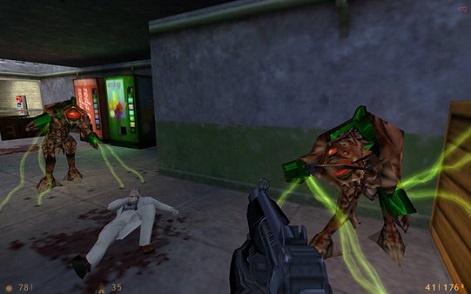
What we learn from games is how to tell stories outside of a linear environment like movies. We have experience in film, television and advertising. Everything is under control. Advertising is brainwashing, essentially, because it can properly inject an idea into your mind. What happens when you work in advertising is you get that veil lifted. You’re like, ‘Oh… I don’t ever want to watch TV ever again.’ You can’t unsee it. You realise how powerful it is.
We don’t have that luxury in games, and therefore games have always had to work around it. What we can learn there is how to engage people without just streaming ideas into their head. I think there’s a real power there because it’s one thing to tell somebody to put trash into the bin, but it’s another thing to have them make their own mind up about it. And I think games have got a much better chance of having a player, a viewer, the audience realise something. It’s doable in film, but it’s just as hard, and there’s a lot more low-hanging fruit and there’s a lot more than just shouting at you to do things.
It’s only very subtle movies that let you realise something; I think games have always had to let you know how to move on, how to solve a puzzle, how to get past the boss. They deliberately don’t tell you things because they want it to be a challenge for you. Taking that into VR, for us, is really exciting. It makes it a million times harder! But it’s really exciting.
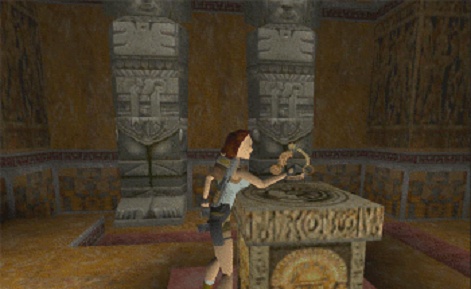
I say VR almost interchangeably with AR, because I believe they will become one thing, and I think they are, anyway.
In your session at Develop you were talking about emergent gameplay. Can you touch on that a little bit?
The headline from our talk is about ‘being’ rather than ‘doing’, and what we think is a super-powerful experience in VR. I say VR almost interchangeably with AR, because I do actually believe ultimately they will become one thing, and I sort of think they are, anyway.
Emergence came from games. Even those books that you would flip through and have to choose page 8 to go down the tunnel, or page 24 to fight the giant spider, right? You still had a bit of your own character emerging into the space. What we’re finding is, with VR, you’re much more inclined to just go and be there as you, because you’re subconsciously way more immersed. You have a sense of presence in that space.
When you’ve got a console controller; if you’ve got a PS4 controller in your hand and there’s a sheet of glass in front of you with photons being projected on the backside of it – yes, my mind is there, but it’s hard for me to properly lose the sense that I’m playing PlayStation. Especially if it’s a third-person game. You’re seeing the back of someone’s head. Of course you’re not them.
But in VR, not only is it first-person and therefore that becomes you, but you suddenly find that actually just putting people in a room where they can just pick stuff up and throw it, it’s what they start doing.
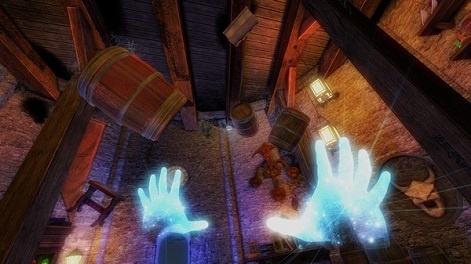
So if you put people in a room and there’s actually a load of information on a wall, they’re much likelier to want to throw stuff at that information than they are to read it and find out what it is they’re supposed to be doing! We don’t want to glaze over that as actually the more important thing.
It’s interesting, though, because sometimes we get testers go in and they want to know what do to. And other times, people go in and we have to say, “Okay, I want you to do something now.” People are different, but we also think that might be to do with the way that we’ve set them up and how they’re going in. Because a tester might be like, “I’m testing. So what do you want me to test?” Whereas if we set up a tester and we’re quite loose with them, maybe they go in there and just start looking.
The first time I walked into this room this morning, I didn’t think, “What are my instructions in this room?” I just walked in and I was me. For all my foibles and all my good things and all my bad things, I was me. We can do that in VR. We could do it in games, but we can really do it in VR. And that’s the bit that’s really exciting.
Not only is mankind now exploring new places, they’re exploring the things they have created. So why on Earth would you need legs? Why do you need gender? It doesn’t matter, right? We’re not dealing with those issues yet, and I feel we should.
VR presence is interesting. You can have the presence of hands and body parts with the Oculus Touch, so there are issues with gender and ethnicity and in there as well. What lessons do we have to learn about that, when it comes to how we show a player's physicality in the virtual space?
Yeah. I think we’ve got to redefine how we exist in that space. We shouldn’t try to replicate our pure existence in Virtual Reality. If we could tap into the back of your cerebral cortex and basically engineer a dream where you could touch, punch, kick, smell, cry, run around the matrix – then yeah, totally you would expect you are you, or you are somebody else. But until we’ve got to that point, we shouldn’t replicate that. We should avoid it, and instead say that VR is a new place where there are new rules and you don’t need legs. Why would you want legs?
For us, VR is just a new destination. Probably from Brighton, probably from places like Portsmouth and Bristol – this country created ships that went across a planet they thought was flat, not sure if they were going to fall off the other end, and stumbled across new, crazy, exotic worlds, and all this madness happened.
For me, where we’re headed is not only that we are now going into new places, but we’re creating them. So not only is mankind now exploring new places, they’re exploring the things they have created. That’s what’s happening. So why on Earth would you need legs? Why do you need gender? It doesn’t matter, right?
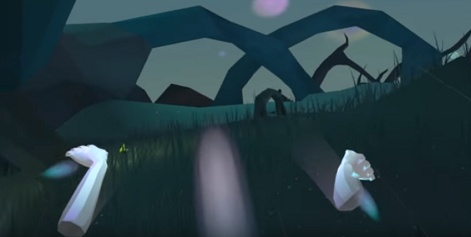
That’s the way I see it. Actually, a lot of these things are quite irrelevant. And it’s not only when we ask people to think, ‘Why am I female? Why haven’t I got legs? Why can’t I walk?’ We’re not dealing with those issues yet, and I feel like we should.
I can’t say much, but you’ll see, in our release later this year, we’ve completely avoided those issues and made that part of the narrative. We’re not avoiding them like it’s not happening, but embracing them, leveraging them, making it make sense.
We didn’t coin this. I can’t remember where I read it, but it’s the fidelity contract. Have you heard that term? The fidelity contract says that there is a fidelity to your world that you define at the beginning, and you don’t break it. So if you can fly, you can always fly, unless there’s a reason you now can’t fly. You try and stick within a set of rules. Star Trek was incredibly good with its fidelity contract. The writers sometimes probably got a bit tired and let go, but most of the time, anything that did happen in Star Trek was explainable, to a degree. Because it made it more immersive. It made you believe the story more. And I think that’s really important in VR.













